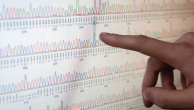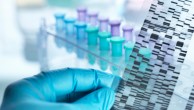
Computer chips in human brains: How Americans view the technology amid recent advances
More than half of U.S. adults (56%) said that widespread use of brain chips to enhance cognitive function would be a bad idea for society.
More than half of U.S. adults (56%) said that widespread use of brain chips to enhance cognitive function would be a bad idea for society.
Many Americans who are highly religious and identify with certain Christian traditions express discomfort with human enhancement.
Americans regard advances in artificial intelligence and human enhancement technologies with a degree of caution and uncertainty.
Public views are tied to how these technologies would be used and what constraints would be in place.
Pew Research Center’s political typology sorts Americans into cohesive, like-minded groups based on their values, beliefs, and views about politics and the political system. Use this tool to compare the groups on some key topics and their demographics.
Majorities say scientific research on gene editing is a misuse – rather than an appropriate use – of technology. But public acceptance of gene editing for babies depends on how it will be used, and views often differ by age and religion.
About half of Americans believe that within the next 50 years science will find a way to eliminate virtually all birth defects through gene editing. Yet majorities of Americans harbor at least some reservations about the impact on society of more widespread use of gene editing.
Americans are more likely to anticipate negative than positive effects from widespread use of gene-editing technology
The U.S. has more foreign students enrolled in its colleges and universities than any other country in the world. Explore data about foreign students in the U.S. higher education system.
The U.S. public has mixed views on using gene editing to reduce babies' risk of serious diseases, with parents of children younger than 18 especially wary.







